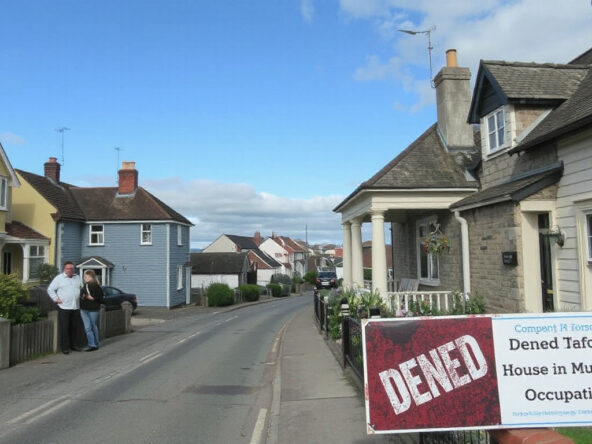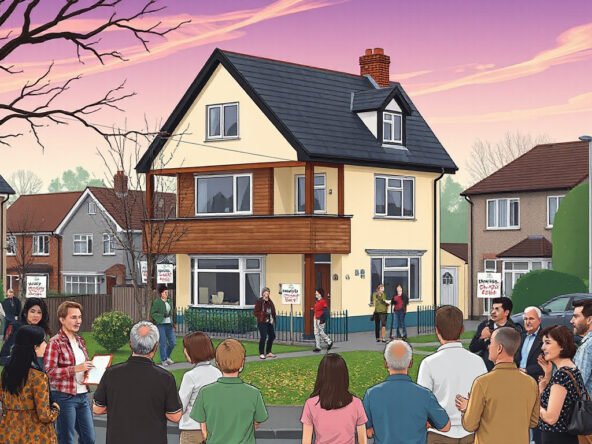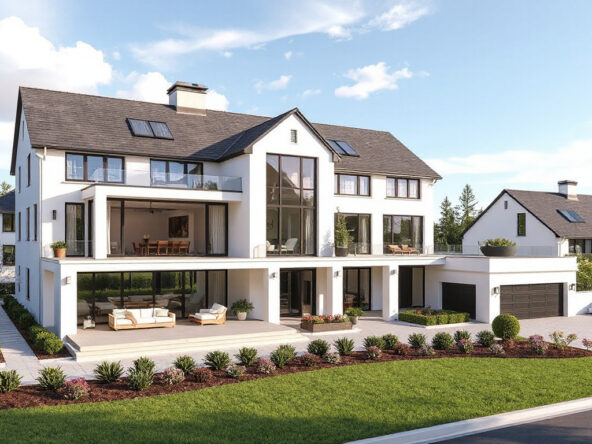In a significant decision reflecting community sentiment, the Merthyr Tydfil planning committee has voted against the development of two Houses in Multiple Occupation (HMOs) in Galon Uchaf and Merthyr Vale. This ruling comes amidst a backdrop of local opposition, with residents voicing worries over highway safety, parking issues, and the overall character of their neighbourhoods. The proposals involved transforming a property on Ninth Avenue into a five-bedroom HMO and repurposing the Mount Pleasant Hotel into a six-bedroom HMO complemented by two flats. Contrary to the recommendations of planning officers, who supported the developments, the committee’s rejection underscored the weight of community concerns and the need to preserve the area’s character.
Key Takeaways
- The Merthyr Tydfil Planning Committee rejected two proposed HMOs due to significant community opposition.
- Concerns about highway safety and increased congestion played a critical role in the committee’s decision.
- Residents fear the proposed developments could lead to anti-social behavior and decline in property values.
Community Concerns and Opposition
In a recent decision, the planning committee in Merthyr Tydfil has opted to reject two controversial proposals for houses in multiple occupations (HMOs) located in Galon Uchaf and Merthyr Vale. The proposed developments included the conversion of a property on Ninth Avenue into a five-bedroom HMO and the transformation of the Mount Pleasant Hotel into a six-bedroom HMO with two additional flats. Despite recommendations from planning officers to approve the applications, the committee raised concerns predominantly about highway safety and the existing character of the neighborhoods. Citing potential increases in on-street parking and traffic congestion, members expressed worries that these developments could negatively impact highway safety (Merthyr Tydfil Council, 2024). Local residents have voiced strong opposition, with feedback including 48 letters along with three separate petitions that collectively gathered 425 signatures opposing the Galon Uchaf project. Concerns highlighted in their objections revolved around the appropriateness of the location for such developments, the anticipated effects on parking and overall community safety, with fears concerning anti-social behavior and the possible decline in property values due to the oversaturation of residential use. It is noteworthy that the hotel site had already been functioning as a residential establishment since its closure as a hotel, complicating the planning narrative. Access to local amenities and transport links were also cited as significant factors influencing the committee’s decision against the proposals (Williams, 2024). The decision reaffirms the authority’s commitment to maintaining the character and safety of residential areas in Merthyr Tydfil.
Implications of the Committee’s Decision
The committee’s decision not only reflects community concerns but also sets a precedent for future developments in the area. By prioritizing local feedback, the planning committee aims to ensure that any new housing initiatives align with the needs and desires of existing residents. This decision is particularly significant as it may influence how similar applications are evaluated, emphasizing the importance of community engagement in the planning process (Jones, 2024). The refusal of these HMOs could deter potential developers from submitting plans that do not adequately address local infrastructure issues. Furthermore, it raises questions about the long-term strategy for housing in Merthyr Tydfil, especially considering the increasing demand for rental properties amidst a growing population. The need for carefully planned housing that integrates with local amenities and transport remains paramount, as communities strive to balance growth with the quality of life for residents (Evans, 2024). The outcome highlights a broader trend in Wales, where local councils are increasingly scrutinizing residential conversions to ensure they uphold community standards and promote sustainable development.




